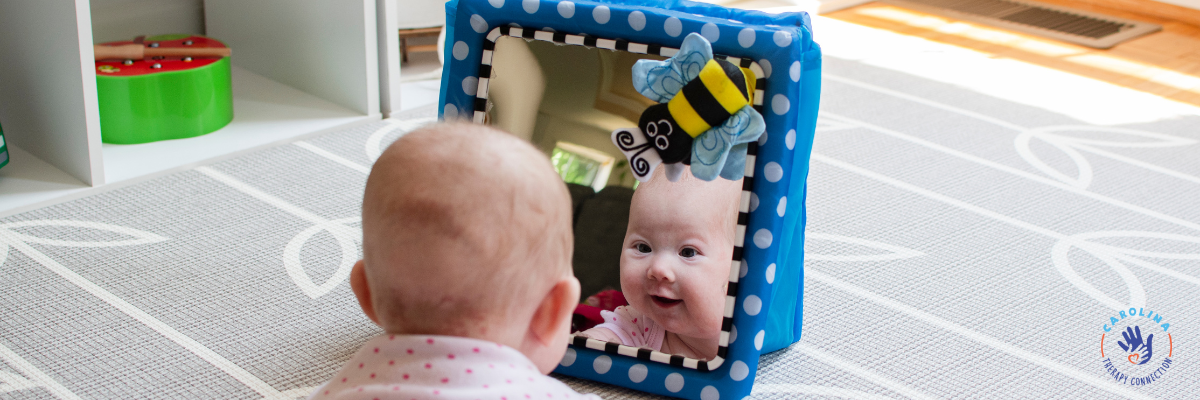Supporting Children Who Struggle at Mealtimes
Does your child avoid certain foods, gag at new textures, or flat-out refuse entire food groups? Mealtimes shouldn’t feel like a battle, but for parents of picky eaters, it can be one of the most stressful parts of the day. Pediatric occupational therapy can help transform mealtime from a struggle into a positive experience by addressing the root cause of your child’s food aversions.
What Is a Picky Eater?
Picky eating is more than just being “a little particular.” It can include avoiding specific textures, colors, smells, or temperatures of foods, often resulting in a restricted diet. While some pickiness is typical during development, extreme food avoidance or distress around eating may signal an underlying sensory or developmental challenge.
Children may be labeled “picky” when they:
- Eat fewer than 20 foods
- Refuse entire food groups (like fruits or vegetables)
- Struggle with food textures or strong smells
- Experience anxiety or meltdowns at mealtimes
- Have difficulty chewing or swallowing certain foods
Why Occupational Therapy for Picky Eaters?
Pediatric occupational therapists (OTs) are trained to look beyond eating behaviors and uncover the “why” behind picky eating. Often, it’s tied to sensory processing difficulties, oral motor challenges, or poor postural control that makes eating physically uncomfortable.
Sensory Processing and Feeding
Children who are sensitive to textures, smells, or temperatures may experience a sensory overload when introduced to new foods. For example, a soft banana might feel “mushy” and unpleasant, or the smell of broccoli might feel overwhelming.
OTs help children explore these sensitivities in a supportive environment through sensory integration therapy. They work to slowly and safely desensitize kids to new sensations so that food becomes less threatening.
Oral Motor and Postural Skills
Eating also requires strong oral motor and postural control. Children with weak jaw muscles, poor tongue coordination, or low muscle tone may find chewing difficult or exhausting, which can make food less enjoyable. OTs support these underlying motor skills to help children feel more confident and capable during meals.
Red Flags That May Indicate a Need for Help
If your child’s picky eating is affecting growth, nutrition, or daily routines, it might be time to speak with a professional. Some red flags include:
- Difficulty transitioning to solid foods
- Coughing, gagging, or vomiting during meals
- Eating the same foods every day without variation
- Poor weight gain or slow growth
- Avoiding social situations involving food
Strategies OTs Use with Picky Eaters
Occupational therapy doesn’t just take place at the clinic—it empowers families with practical strategies to use at home. Here are a few common approaches used by OTs:
- Food Chaining: This method helps children transition from preferred foods to new foods by making small, manageable changes. For example, moving from plain crackers to whole wheat crackers, then to toasted bread.
- Play-Based Exposure: Children explore new foods through play and sensory activities—touching, smelling, and eventually tasting foods at their own pace. Removing pressure and expectations allows kids to feel safe and curious.
- Positive Mealtime Routines: Therapists help families create consistent routines and eliminate everyday power struggles during meals. This might include visual schedules, timer-based meal times, or family-style dining to model good behavior.
- Environmental Modifications: Simple changes, such as adjusting seating posture, minimizing distractions, or using adaptive utensils, can make a significant difference in a child’s willingness to participate in meals.
How Carolina Therapy Connection Can Help
At Carolina Therapy Connection, we understand how frustrating and emotional it can be to raise a child who struggles with eating. Our pediatric occupational therapists specialize in identifying the underlying causes of picky eating and providing customized strategies that make a real difference.
Whether your child needs support with sensory processing, oral motor skills, or building positive routines, we are here to help. We offer free screenings to determine if your child would benefit from therapy, and we can schedule a comprehensive feeding evaluation to get started. Let us help turn mealtime into a time of connection, not conflict.












